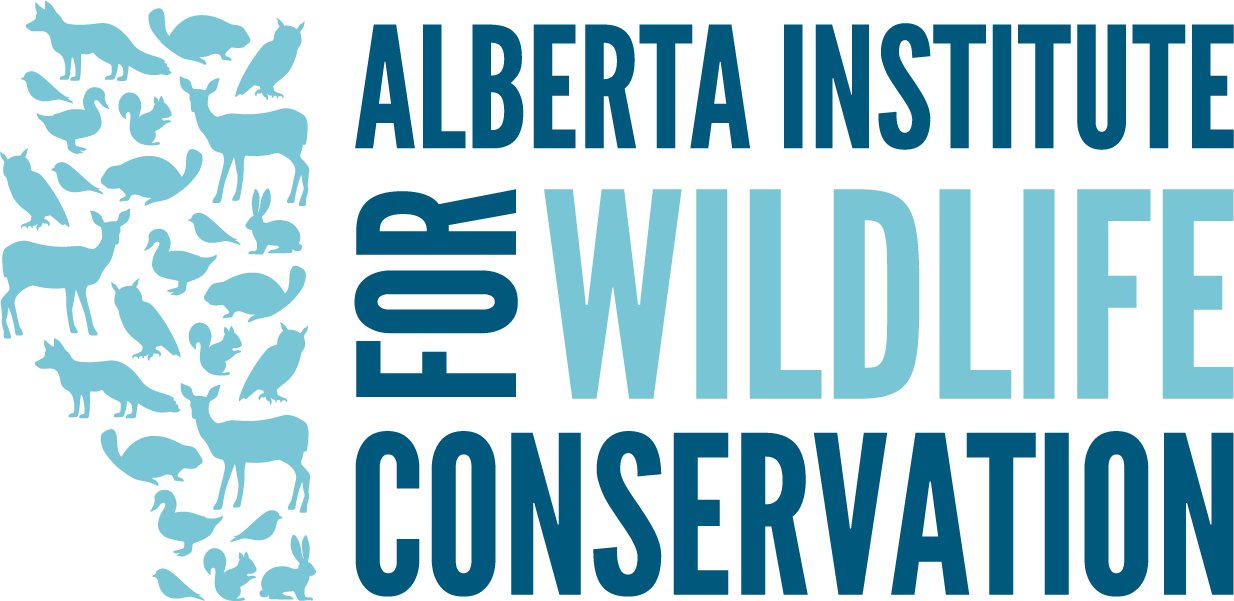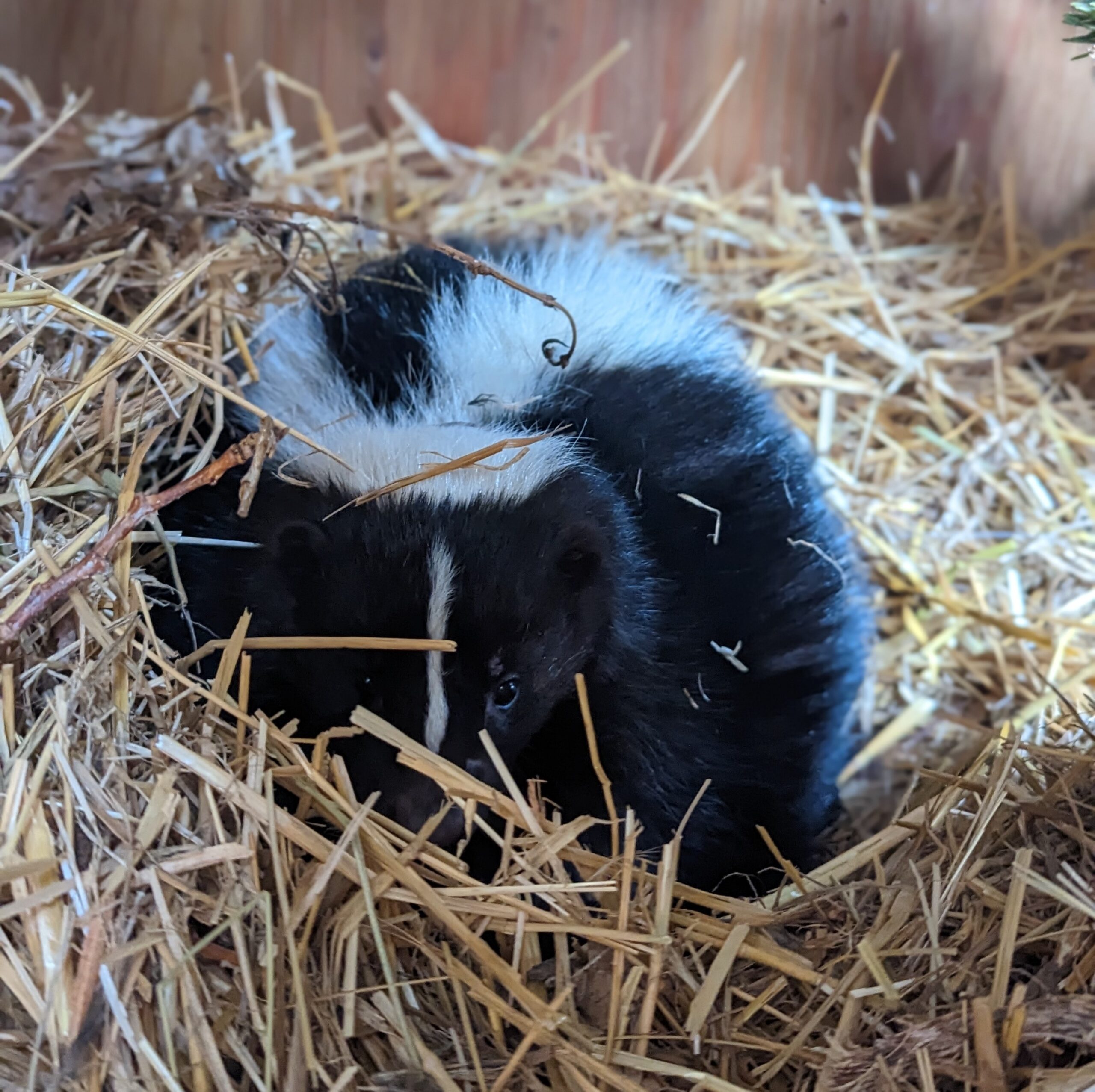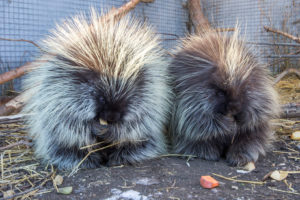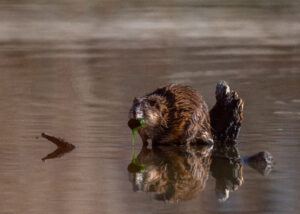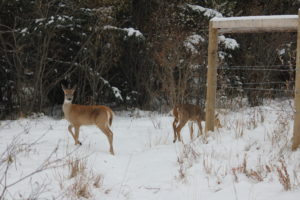By Kendra Thomas
How do skunks cope with winter?
During the coldest months of winter, skunks retreat to underground dens where they enter a state called torpor.1 This gives the skunks protection from the harsh winter elements. Torpor also slows down their metabolic rates allowing them to depend on stored body fat as a source of energy during a part of the year when food is scarce.1
What's the difference between torpor and hibernation?
What should I do if I see a skunk outside in winter?
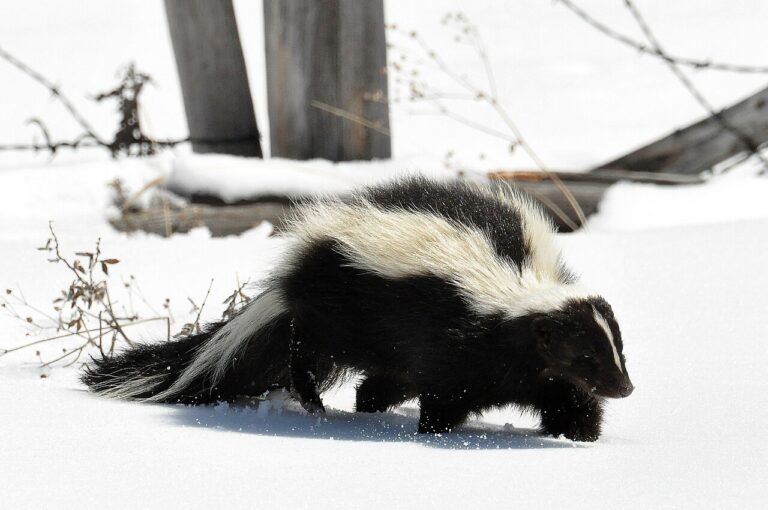
Why are skunks important?
Skunks are omnivores, and they eat almost anything.4 This gives skunks an important role to play in ecosystems as they help regulate populations of insects, snakes, and small rodents, preventing populations from growing out of control.5
There are many things you can do to both help skunks, and promote the benefits that they provide to ecosystems. Here are some ways you can help:
- Collect litter and put it in secured garbage bins.4
- Learn to live with skunks. Avoid trapping and moving them, as it is ineffective and it poses a danger to the skunks.4
- Keep your pets indoors or on a leash so they don’t accidentally injure nearby skunks.4
If you come across an injured or orphaned skunk, contact your local rehabilitation centre.4
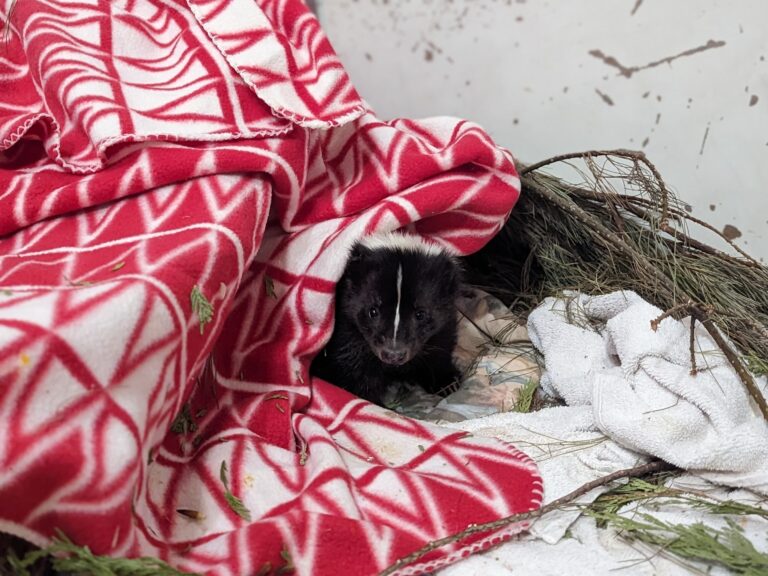
Footnotes
- Mutch, Graham R., and Michael Aleksiuk. “Ecological Aspects of Winter Dormancy in the Striped Skunk (Mephitis Mephitis).” Canadian Journal of Zoology 55, no. 3 (1977): 607–15. https://doi.org/10.1139/z77-077.
- Ruf, Thomas, and Fritz Geiser. “Daily Torpor and Hibernation in Birds and Mammals.” Biological Reviews 90, no. 3 (2014): 891–926. https://doi.org/10.1111/brv.12137.
- Tschanz, Steve. “Barrie Wildlife Control: Skunks in the Winter.” Skedaddle Humane Wildlife Control, March 6, 2023. https://www.skedaddlewildlife.com/location/barrie/blog/skunks-in-the-winter/.
- Terril, Katerina. “Online Learning.” Alberta Institute for Wildlife Conservation, August 10, 2022. https://www.aiwc.ca/get-involved/wildlife-education/online-learning/#uael-video-gallery-7d26a4d5-1.
- Mueller, Marcus. “Are There Benefits to Skunks Being Around?” Skedaddle Humane Wildlife Control, July 5, 2021. https://bit.ly/464R5T0.
